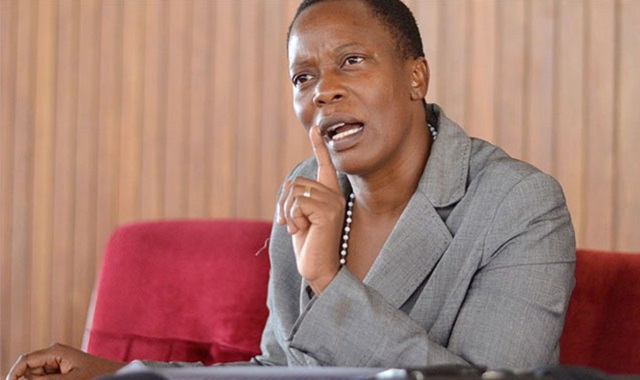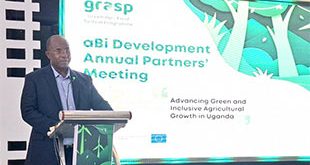
Kampala, Uganda | THE INDEPENDENT | A section of Members of Parliament have questioned the continued payment of legislators without working.
The MPs forming part of the Opposition leadership led by Betty Nambooze, MP Mukono Municipality and Kalungu West MP, Joseph Ssewungu, say that the payments of their allowances without work amount to theft of public funds.
While addressing journalists at Parliament, the two said that the money currently paid to the 529 Members of Parliament in transport allowances without executing their duties should be earmarked to other activities like purchase of food and other services for vulnerable Ugandans who are currently under lockdown.
Recently, the Deputy Speaker of Parliament Anita Among sent the House into a two weeks recess to allow for the fumigation of the Parliament building amid the surge of Covid-19 cases.
The development came after only three sittings of the Eleventh Parliament proceeding the swearing in of the new MPs. Among the key business handled during the sittings was the election of the Speaker and Deputy Speaker, Budget reading and approval of the appointed Ministers.
By the time parliament broke off, only the Appointments Committee was fully constituted leaving other standing and sectoral committees not constituted. According to Nambooze and Ssewungu, the failure to have committees constituted to allow members transact parliament business also creates a gap in their oversight role especially in the country’s response to the Covid-19 pandemic.
Nambooze and Ssewungu were designated as chairperson and vice chairperson of the Government Assurance Committee, by the biggest Opposition party in Parliament- the National Unity Platform (NUP).
“Why are we taking public funds if we are not working?” asked Nambooze. “I get 11 million Shillings in salary and in my account, I end up with 6.1 million after tax. The rest of the money I earn here are allowances and first of all it is paid in advance. Parliament is the only employer where you get money you are going to work for, not arrears!”
MP Nambooze also queried the payment of 4 million Shillings in allowances to enable her conduct four tours in her constituency at a time when politicians are not allowed to hold meetings.
The Parliamentary Commission pays each legislator a monthly salary of 6 million Shillings exclusive of taxes. A Member of Parliament earns between 25 and 30 million Shillings monthly when other allowances are included.
Some of the other financial benefits of MPs are a monthly subsistence allowance of 4.5 million, town running allowance of 1 million, medical allowance of 500,000 Shillings, Sitting allowance of between 50,000 to 150,000 Shillings for committee meetings ( 50,000 for committee members, 150,000 for Committee chairperson and 100,000 for a Vice chairperson).
The MPs are also entitled to a plenary sitting allowance of 150,000 Shillings as well as mileage or fuel allowances. They also receive a one-off vehicle allowance of 200 million Shillings at the beginning of their term.
“Why are you giving us money for meetings? If we are not working, we are all under lockdown, why is it that we continue earning our transport allowances. We are earning money yet we are not being given an opportunity to serve. This nation should have standards,” she added.
She suggested that the money in allowances should be withheld in the meantime given that MPs are not working. Nambooze said that this should be re-allocated to other issues affecting the country.
Nambooze also demanded that the parliamentary leadership immediately ensures full constitution of the Parliamentary Commission and committees so that the elected representatives of the people carry out their mandate of oversight, representation and others.
Equally, MP Joseph Ssewungu also demanded that members are allowed to work under different committees of parliament citing backlog for his committee. He said that the Government Assurance Committee needs to specifically follow up on Covid-19 pledges made by government since the pandemic started.
Ssewungu also says that this is the most critical time that parliament should sit.
Last week, the Government Chief Whip Thomas Tayebwa said that there was no need to open Parliament in the wake of the pandemic.
He says that as it stands now, if Parliament needs to sit, it will be called. Tayebwa says everything the government is doing now is within the law and there is no cause for alarm.
*****
URN
 The Independent Uganda: You get the Truth we Pay the Price
The Independent Uganda: You get the Truth we Pay the Price



